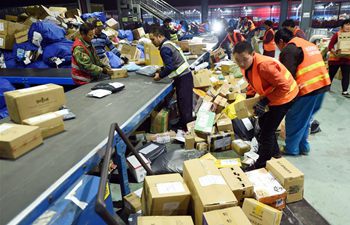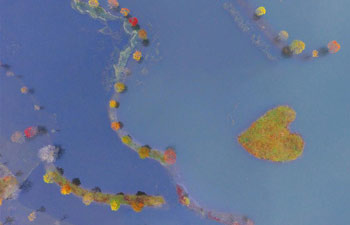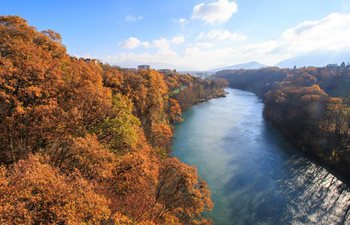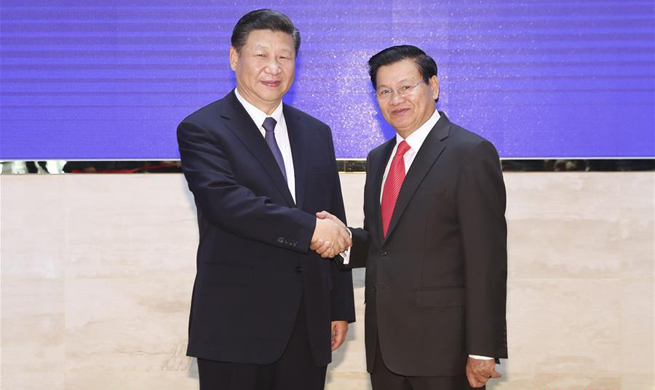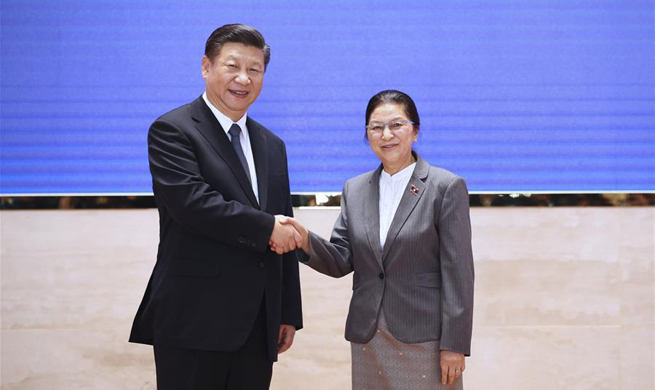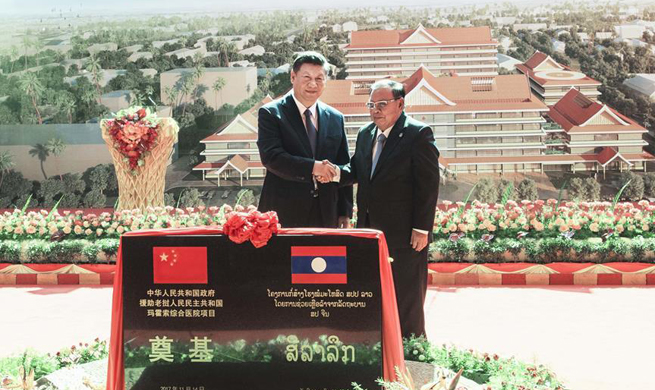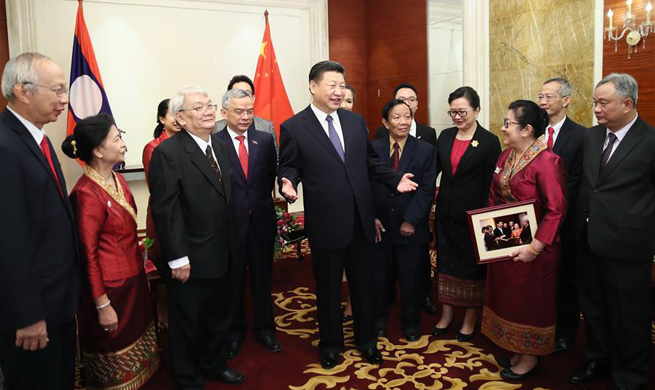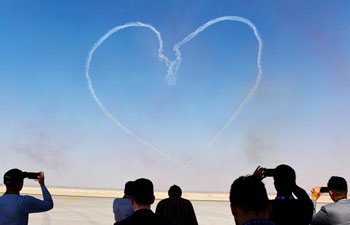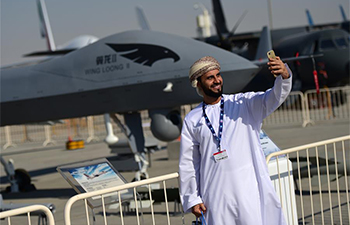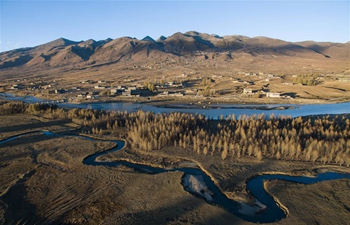MANILA, Nov. 14 (Xinhua) -- Leaders from the 10 members of the Association of Southeast Asian Nations (ASEAN) and its dialogue countries met here Tuesday to discuss the "complex challenges" facing the region and chart the course for future development.
In his opening remarks, Philippine President Rodrigo Duterte, who chaired the 12th East Asia Summit (EAS) forum, stressed the need to assess especially the evolving security situation in the region.
"Our region is facing complex challenges that perhaps only a few have imagined decades ago. Technological developments and a more open economic region have resulted in our societies becoming more interconnected," Duterte said.
"The effects of migration, environmental degradation and armed conflict in one location can have repercussions across the world," he added.
"We have also been made painfully aware that terrorism knows no borders and that violent extremists are becoming more adept at exploiting power vacuums, instability and discontent to spread their narrative hatred and destruction," Duterte said.
The president called EAS with ASEAN at the helm a mechanism, by which strategic dialogues in the evolving regional security architecture take place.
"Cooperation established at the highest level will impact our pursuit of maintaining peace, security and prosperity of our regions," Duterte said.
In a draft chairman's statement released immediately after the opening of the summit, the EAS leaders reaffirmed that "the East Asia Summit would continue to be an open, inclusive, transparent and outward-looking forum that will strengthen global norms and universally recognized principles, with ASEAN as the driving force."
Energy, education, finance, global health, sustainable development and environment are among the priority areas discussed at the meeting.
On the ASEAN connectivity, the statement said, "We underscored the importance of promoting infrastructure development in East Asia to facilitate trade, investment and service competitiveness in the region and acknowledged that the mobilization of means of implementation of infrastructure projects is critical."
In the statement, the EAS leaders also strongly condemned the terrorist attacks that took place recently in the region, and the need for countries to support efforts to counter terrorism and extremism.
They also stressed the need to promote peace and security in the region, saying it is needed to achieve high economic growth by increasing trade, investment, and job creation.
The EAS draws leaders from 18 countries, including 10 ASEAN member states and six dialogue partners - China, Japan, South Korea, India, Australia and New Zealand as well as the United States and Russia as new comers.
Since its inception in 2005, the EAS has served as a forum for dialogue on broad strategic issues of relevance to East Asia as well as other regional and global issues, with the focus on areas such as international terrorism, energy, infectious diseases, sustainable development and poverty reduction.
Established in 1967, ASEAN groups Brunei, Cambodia, Indonesia, Laos, Malaysia, Myanmar, the Philippines, Singapore, Thailand and Vietnam. The 31st ASEAN summit and related summits, including the EAS, are being held under the theme "Partnering for Change, Engaging the World."





